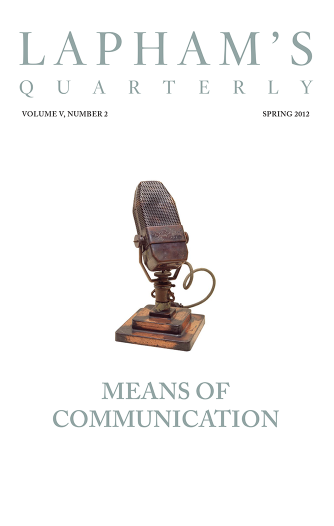The prolongation of the working day beyond the limits of the natural day, into the night, only acts as a palliative. It quenches only in a slight degree the vampire thirst for the living blood of labor.
To appropriate labor during all the twenty-four hours of the day is the inherent tendency of capitalist production. But as it is physically impossible to exploit the same individual labor power constantly during the night as well as the day, to overcome this physical hindrance an alternation becomes necessary between the workpeople whose powers are exhausted by day and those who are used up by night. This alternation may be effected in various ways; e.g., it may be so arranged that part of the workers are one week employed on day work, the next week on night work. It is well-known that this relay system, this alternation of two sets of workers, held full sway in the full-blooded youth time of the English cotton manufacture, and that at the present time it still flourishes, among others, in the cotton spinning of the Moscow district. This twenty-four hours’ process of production exists today as a system in many of the branches of industry of Great Britain that are still “free,” in the blast furnaces, forges, plate-rolling mills, and other metallurgical establishments in England, Wales, and Scotland. The working time here includes, besides the twenty-four hours of the six working days, a great part also of the twenty-four hours of Sunday. The workers consist of men and women, adults and children of both sexes. The ages of the children and young persons run through all intermediate grades, from eight (in some cases from six) to eighteen.
In some branches of industry, the girls and women work through the night together with the males.
Placing on one side the generally injurious influence of night labor, the duration of the process of production, unbroken during the twenty-four hours, offers very welcome opportunities of exceeding the limits of the normal working day, e.g., in the branches of industry already mentioned, which are of an exceedingly fatiguing nature; the official working day means for each worker usually twelve hours by night or day.
“What is a working day? What is the length of time during which capital may consume the labor power whose daily value it buys? How far may the working day be extended beyond the working time necessary for the reproduction of labor power itself?” It has been seen that to these questions capital replies: the working day contains the full twenty-four hours, with the deduction of the few hours of repose without which labor power absolutely refuses its services again. Hence it is self-evident that the laborer is nothing else, his whole life through, than labor power, that therefore all his disposable time is by nature and law labor-time, to be devoted to the self-expansion of capital. Time for education, for intellectual development, for the fulfilling of social functions and for social intercourse, for the free play of his bodily and mental activity, even the rest time of Sunday (and that in a country of Sabbatarians!)—moonshine! But in its blind, unrestrainable passion, its werewolf hunger for surplus labor, capital oversteps not only the moral but even the merely physical maximum bounds of the working day. It usurps the time for growth, development, and healthy maintenance of the body. It steals the time required for the consumption of fresh air and sunlight. It higgles over a mealtime, incorporating it where possible with the process of production itself, so that food is given to the laborer as to a mere means of production, as coal is supplied to the boiler, grease and oil to the machinery. It reduces the sound sleep needed for the restoration, reparation, refreshment of the bodily powers to just so many hours of torpor as the revival of an organism, absolutely exhausted, renders essential. It is not the normal maintenance of the labor power that is to determine the limits of the working day; it is the greatest possible daily expenditure of labor power, no matter how diseased, compulsory, and painful it may be, that is to determine the limits of the laborers’ period of repose. Capital cares nothing for the length of life of labor power. All that concerns it is simply and solely the maximum of labor power that can be rendered fluent in a working day. It attains this end by shortening the extent of the laborer’s life, as a greedy farmer snatches increased produce from the soil by robbing it of its fertility.
The capitalistic mode of production (essentially the production of surplus value, the absorption of surplus labor), produces thus, with the extension of the working day, not only the deterioration of human labor power by robbing it of its normal, moral and physical, conditions of development and function. It produces also the premature exhaustion and death of this labor power itself. It extends the laborer’s time of production during a given period by shortening his actual lifetime.
But the value of the labor power includes the value of the commodities necessary for the reproduction of the worker, or for the keeping up of the working class. If then the unnatural extension of the working day that capital necessarily strives after in its unmeasured passion for self-expansion shortens the length of life of the individual laborer, and therefore the duration of his labor power, the forces used up have to be replaced at a more rapid rate, and the sum of the expenses for the reproduction of labor power will be greater. Just as in a machine, the part of its value to be reproduced every day is greater the more rapidly the machine is worn out. It would seem, therefore, that the interest of capital itself points in the direction of a normal working day.
From Capital. As a seventeen-year-old law student at Bonn University in 1835, Marx frequently worked late into the night, drinking cheap ale and smoking pungent cigars; he was once jailed for engaging in boisterous reveling. The next year he transferred to Berlin, where he was inspired by the work of G.W.F. Hegel, excitedly writing to his father that after reading it, he “wanted to embrace every day laborer standing on street corners.” He stayed up until four am to write the letter, stopping only when the candle melted to its stub.
Back to Issue




